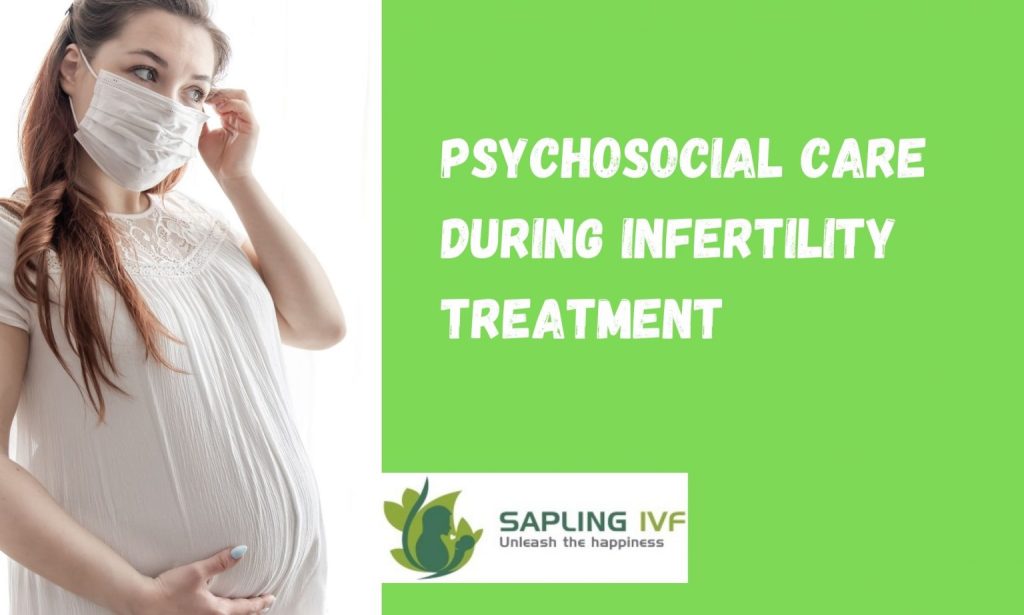Care You Need To Take During Infertility Treatment

Difficulty in conceiving is a common problem for couples in India now-a-days. Don’t let a string of negative pregnancy tests dishearten you. Doctors advise young couples in their 20s and early 30s to try naturally for up to a year. Conception is a very tricky concept and happens only during the fertile window of a woman’s menstrual cycle. You may not get pregnant in the very first attempt, however even after trying naturally for 1 year if you are unable to conceive, then it is a matter of concern.
Over the years, we have seen more and more couples open up about their fertility problems. They are proactively seeking expert help about their reproductive health. It’s no longer a topic behind closed doors. Here, advanced technology and excellent guidance from internationally acclaimed fertility specialists that the industry has to offer. In this blog, we will dwell on some guidelines that will help you decide when you should consult a fertility specialist.
Age Factor
If you are below 35 years old and have tried naturally for over 12 months to get pregnant, it’s time to visit a fertility specialist. In Indian women, the ovarian reserve generally starts declining rapidly from the age of 35. With aging, the egg reserve of an otherwise healthy woman starts depleting and gets completely exhausted by the age of 40-45 years leading to menopause.
If you are above 35 years old and have been trying to conceive naturally and failing for 6 months or more, visit a fertility specialist immediately. Women over the age of 35 years have a lesser chance of pregnancy even through assisted reproductive techniques, because the eggs may not be of the best quality at a later age. With age, other complications can also arise leading to a depleted ovarian reserve.
The Health Factor
There are several health conditions that have adverse effects on the fertility potential of women. Thyroid disorder in women can lead to hormonal imbalances. Women who suffer from thyroid diseases are known to be affected with conditions like infertility, miscarriages, abnormalities in foetal brain development, etc. However, if the thyroid disorder is identified and the patient takes medication, then the woman can conceive through fertility treatment. During the treatment procedure, it is advised that you consult your fertility specialist regularly.
Women suffering from PCOS or endometriosis are advised to consult the fertility specialist when they decide to get pregnant. Endometriosis leads to an unhealthy pelvic environment that may be associated with damaged tubes and weaker ovaries, resulting in lower chances of natural conception.
Undiagnosed fertility issues can be another reason for when to consult a fertility specialist. In these cases, symptoms to look out for are, irregular periods, pain in pelvic region, an absence of periods, and multiple miscarriages that may have occurred in the past. If you have any of these symptoms, it is advised to reach out to a fertility specialist without wasting further time.
Women suffering from chronic medical conditions like kidney complications, hypertension, and cancer, genetically transferred conditions like diabetes etc. are advised to consult a fertility specialist for a treatment plan to achieve a healthy pregnancy.
The Male Factor
Infertility is not a woman’s problem alone. Male factors are found in 40-45% of all infertility cases. In men, infertility is generally because of poor sperm factors that can occur due to associated conditions like cancer or cancer treatment, testicular or pelvic injury, varicocele, diabetes, obesity, etc. In many cases however, there is no underlying cause found. A semen analysis should always be done right as a part of the initial evaluation, so that further treatment options can be decided accordingly.
Problems such as erectile dysfunction and premature ejaculation can also cause difficulties in conceiving and they are generally addressed by sexologists and psychologists. Any type of infections or sexually-transmitted infections (STIs) should be treated immediately, for they can affect the quantity and the quality of sperms. If any of these factors apply to you or your partner, it is advised to consult a fertility specialist immediately. Fertility treatments like IVF and ICSI help with male infertility.
Problems such as erectile dysfunction and premature ejaculation can also cause difficulties in conceiving and they are generally addressed by sexologists and psychologists. Any type of infections or sexually-transmitted infections (STIs) should be treated immediately, for they can affect the quantity and the quality of sperms. If any of these factors apply to you or your partner, it is advised to consult a fertility specialist immediately. Fertility treatments like IVF and ICSI help with male infertility.
Infertility in men and women can happen because of many reasons, so it is highly advisable that one should not wait and try home remedies as age is an important contributing factor for the chances of getting pregnant. It is a battle against time and so, the sooner you visit the fertility specialist, the better for you.
PSYCHOSOCIAL CARE DURING INFERTILITY TREATMENT
Caring for the emotional needs of the patient demands continuity of care. It means providing patient-centered care in all aspects of infertility treatment, to ensure that the people being treated are understood as individuals and not only as biological entities. The empathetic client centered approach provides the basic core context of ongoing psychological support for all patients.
The European Society of Human Reproduction and Embryology (ESHRE) guideline 2015 has differentiated patient support into two complementary levels of psychosocial care:
1. Routine Psychosocial Care
2. Specialized Psychosocial Care which needs the attention of mental health professionals.It includes
I. Infertility Counselling (e.g. crisis intervention, grieving support, implications counselling)
II. Psychotherapy (for patients with diagnosed mental health disorders).
It is now consensual that most patients i.e. 80% identify a relatively common set of challenges to the treatment process which can be incorporated into routine psychosocial care. Routine psychosocial care is the responsibility of all fertility staff to be given throughout the treatment pathway.
Specialized psychosocial care should be targeted to that 20% or so of patients who are at risk of experiencing significant emotional problems. This group needs to be identified early during the infertility treatment so that they can be referred for specialized psychosocial care to a qualified mental health practitioner such as a psychiatrist or a clinical psychologist for infertility counseling or psychotherapy (13)

Fig 1. Schematic representation of the clinical profile of infertility patients, the corresponding psychosocial care needs, and the staff who can address the psychological needs of the patient (Eshre 2015)
The evidence on these complementary approaches indicated that providing routine psychosocial care can positively affect many relevant patient outcomes(Eshre 2015 )reduce emotional distress and increase compliance with treatment, decrease concerns about medical procedures, change lifestyle behaviors (i.e., nutrition, exercise ), improve fertility knowledge, and improve well-being. This can enhance the treatment outcome.
Routine Psychosocial Care
Routine psychosocial care is a client-centered approach that is based on the changing needs of the patient across different stages of infertility treatment. The needs of the patient have been classified according to the W.H.O. definition as follows :
1. Cognitive Needs :
The patients need to know and understand the various facets of infertility diagnosis and management, to clear the doubts and concerns, to be meaningfully engaged in shared decision-making processes. This enables the patient to make informed choices and be prepared for possible unfavorable outcomes as and when they arise.
2. Emotional Needs :
There is a need to identify and address depression, anxiety, psychopathology, and general well-being. Unresolved emotional distress is a major contributor to drop-out as well as litigations against the medical team. The coping methods used by the couple determine how they face the challenge of infertility diagnosis or treatment.
3. Relational and Social Needs:
Relational needs refer to marital/relationship satisfaction, relational stress, and sexual relationship. Social concerns are defined as sensitivity to comments, reminders of infertility, feelings of social isolation, and alienation from family or peers.
Differing views of the man and woman on need for child or significance of parenthood need to be addressed.
4. Behavioural Needs:
The lifestyle affects both general, as well as reproductive health Patients, may need support for their weight loss program or to modify other lifestyle risk factors such as unhealthy diet, irregular sleeping waking cycles, etc. Compliance with treatment protocols is also a behavior that can impact the treatment outcome. Hence. There is also a need to understand and address the reasons for poor compliance with the treatment protocols.

FIG2: Schematic representation of the guideline approach for the provision of psychosocial care tailored to specific treatment stages and patient needs (Eshre,2015)
Evidence suggests that the needs of patients (behavioral, relational and social, emotional and cognitive) change during the different in various phases of treatment, i.e., before, during, and after treatments.If the staff are aware of the most common needs patients experience at different stages, then implementing routine procedures to address these needs can maximize the impact of psychosocial care for patients.
Identifying And Adressing Patient Needs At Different Phases Of Treatment


